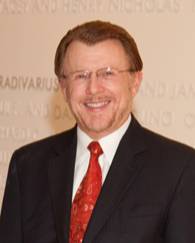The Chapman National Security and Intelligence Law Society and World Affairs Council of Orange County presents:
Constitutional War Powers – Comparing the Three Branches
A Lunchtime Discussion Panel
April 22, 2025
11:45 AM – 1:15 PM; Lunch Provided
Chapman Fowler School of Law, Kennedy Hall Room 237
1 University Dr, Orange, CA 92866
Panelists:
Tom Campbell
 Tom Campbell holds a JD, magna cum laude, from Harvard Law School and a Ph.D. in economics from the University of Chicago. He clerked for U.S. Supreme Court Justice Byron White and Judge George E. MacKinnon of the D.C. Circuit. Campbell served in all three branches of government, including multiple terms in the U.S. House of Representatives and as Director of the California Department of Finance. His scholarship spans constitutional and economic legal analysis.
Tom Campbell holds a JD, magna cum laude, from Harvard Law School and a Ph.D. in economics from the University of Chicago. He clerked for U.S. Supreme Court Justice Byron White and Judge George E. MacKinnon of the D.C. Circuit. Campbell served in all three branches of government, including multiple terms in the U.S. House of Representatives and as Director of the California Department of Finance. His scholarship spans constitutional and economic legal analysis.
Nahal Kazemi
 Nahal Kazemi is an Assistant Professor at Chapman University’s Fowler School of Law, where she teaches National Security Law. A former political-military affairs officer in the U.S. Foreign Service, she served in Iraq, Morocco, Hungary, and Washington, D.C. She earned her BA magna cum laude and JD cum laude from Harvard, where she was Executive Editor of the Harvard International Law Journal. Her work and writing focus on national security, the rule of law, and authoritarianism.
Nahal Kazemi is an Assistant Professor at Chapman University’s Fowler School of Law, where she teaches National Security Law. A former political-military affairs officer in the U.S. Foreign Service, she served in Iraq, Morocco, Hungary, and Washington, D.C. She earned her BA magna cum laude and JD cum laude from Harvard, where she was Executive Editor of the Harvard International Law Journal. Her work and writing focus on national security, the rule of law, and authoritarianism.
Celestine McConville
Celestine McConville is a Professor of Law at Chapman University’s Fowler School of Law, where she teaches Constitutional Law, Federal Courts, and related subjects. She joined the faculty in 2000 and has been honored five times as Professor of the Year. Before entering academia, Professor McConville clerked for Chief Justice William H. Rehnquist at the U.S. Supreme Court, Judge Cynthia Holcomb Hall on the Ninth Circuit, and Judge Donald C. Nugent in the Northern District of Ohio. She practiced law at Shea & Gardner in Washington, D.C., focusing on constitutional, labor, banking, and aviation litigation. Professor McConville holds a JD from Georgetown University Law Center and a BA from Boston University. Her scholarship centers on constitutional law and the death penalty, and she is a co-author of Understanding Capital Punishment and Federal Courts: A Contemporary Approach.
Moderated by Dr. Mark Chapin Johnson
 Professor Johnson spent several decades as an entrepreneur starting and building national businesses prior to becoming a Chapman University Trustee and Professor. After a wide ranging and intriguing business career he returned to the university campus to receive his undergraduate degree at Chapman and graduate degrees at Claremont Graduate University. Traveling earlier to nearly a 100 countries with his sons over many years created a strong sense of wonder and curiosity about the American Dream and how it came about. These life journeys lead him to study American Politics and the Comparative Politics of the Middle East to try and understand “how things really work”. Although continuing to be deeply involved in philanthropic, political and academic organizations and boards, he continues to research and study The Founders, Congressional Decision Making (yes, an oxymoron) and the extremely volatile history and behavior of the Middle East. His joy is in bringing his subject matter alive in the classroom for his students so that they may genuinely understand and be fascinated by the material being studied. His goal is to “connect the dots” of life and make what initially may seem dusty and irrelevant historical events, very current, exciting and important to his students in the understanding of their world. Having been involved in Presidential, Gubernatorial and Congressional campaigns while building a pharmaceutical business and real estate development portfolio allows for wide ranging and dynamic discussions of political behavior and history in Professor Johnson’s courses. When not traveling, studying or instructing, Professor Johnson can be found performing low level nape of the earth combat flying exercises over the California and Arizona desert in his AStar jet turbine helicopter.
Professor Johnson spent several decades as an entrepreneur starting and building national businesses prior to becoming a Chapman University Trustee and Professor. After a wide ranging and intriguing business career he returned to the university campus to receive his undergraduate degree at Chapman and graduate degrees at Claremont Graduate University. Traveling earlier to nearly a 100 countries with his sons over many years created a strong sense of wonder and curiosity about the American Dream and how it came about. These life journeys lead him to study American Politics and the Comparative Politics of the Middle East to try and understand “how things really work”. Although continuing to be deeply involved in philanthropic, political and academic organizations and boards, he continues to research and study The Founders, Congressional Decision Making (yes, an oxymoron) and the extremely volatile history and behavior of the Middle East. His joy is in bringing his subject matter alive in the classroom for his students so that they may genuinely understand and be fascinated by the material being studied. His goal is to “connect the dots” of life and make what initially may seem dusty and irrelevant historical events, very current, exciting and important to his students in the understanding of their world. Having been involved in Presidential, Gubernatorial and Congressional campaigns while building a pharmaceutical business and real estate development portfolio allows for wide ranging and dynamic discussions of political behavior and history in Professor Johnson’s courses. When not traveling, studying or instructing, Professor Johnson can be found performing low level nape of the earth combat flying exercises over the California and Arizona desert in his AStar jet turbine helicopter.
Professor Johnson’s doctoral dissertation was on the efficacy of Congressional Decision Making through looking at the process of legislating American Energy Policy from the Arab Oil Embargo of 1973 forward to today (actually turned out to be interesting and revealing!



